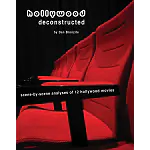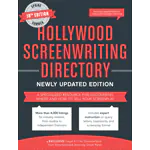Dan Bronzite’s Script Tips
Writing the Perfect Ending
Yep, they can make it – and they can break it! In one fell swoop you have to tie-up any loose ends and satisfy an audience’s expectation. Not an…
Creating Effective Scene Transitions
Sometimes as writers we get so caught up with developing the crucial elements of a screenplay such as character arcs, plot logic, theme, structure and snappy dialogue that we…
What is the Time Frame of Your Screenplay?
When you first get the idea for a story it will probably focus around an interesting character, event, act three plot twist, high concept or thrilling action sequence, but…
Avoid Coincidence In Storytelling
Constructing an original, entertaining and intelligent plot is hard work, but that should not mean you should settle for the easy option when writing a screenplay. In fact, the…
Whose Point of View Is It?
Unless you are writing an ensemble movie like Robert Altman’s Short Cuts you will typically focus your story on a central character’s journey and the obstacles thrown in his…
Be Bold With Your Screenwriting
Every screenwriter wants to create an original, entertaining and memorable movie but that goal is often hard to achieve. There is no magic formula, no matter what anybody says. …
Structure Vs Free-Form Script Writing
Screenwriters, novice and pro, will inevitably have their own contrasting methodologies for writing a screenplay and you will often hear conflicting rules to adhere to from prominent screenwriting gurus…
The Selfless Hero
When we think of a hero in a movie we immediately assume we are talking about the central character otherwise known as the Protagonist, but many stories conceal a…
High Concept Movies
For some screenwriters, penning an original high concept movie is the holy grail. And that can be a good thing or a bad thing. These days, the majority of…



